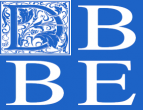The Database of Byzantine Book Epigrams project (DBBE) will organize a conference on “Paratexts in Premodern Writing Cultures”, which will take place in Ghent on 24-25 June 2024.
The study of paratexts has become increasingly crucial to the understanding of premodern book culture. The growing scholarly attention to the historical and cultural significance of the material features of textual supports has led to a keen interest in these texts that according to Genette’s definition are situated on the threshold between the extratextual and the textual. They can be studied as unique vectors of knowledge, as testimonies to a history of reading, and as indications for spiritual, cultural, and economic motivations behind book production and consumption.
Since its inception in 2010, the DBBE project has aimed to collect Byzantine book epigrams (or: metrical paratexts) in an open-access online database, conceived and developed with an interdisciplinary approach. Book epigrams, in the Byzantine Greek tradition, are poems that provide us with more information about the books they are written in. In many of these poems, scribes, patrons, and book owners reveal their presence and feelings, by means of colophons, prayers, and dedicatory epigrams. Book epigrams may also comment on the texts transmitted in the manuscripts and their authors, or on the miniatures that appear in books. In other book epigrams the readers are addressed and involved in an imaginary dialogue with the scribe or with the book itself. The paratextual dimension of book epigrams turns out to be a fascinating aspect that connects book culture with broader historical questions.
With this conference we aim to bring together scholars engaged in the exploration of premodern paratexts transmitted in a variety of languages (such as Arabic, Armenian, Greek, Coptic, Hebrew, Latin, Slavonic, Syriac). It is our aim to discuss the nature of paratextuality in medieval manuscripts, to reveal similarities and peculiarities of paratexts across language borders, and to understand the broader cultural and historical ramifications of paratexts. We are interested both in the textual evidence of medieval paratexts and in their material transmission.
A crucial aspect of the DBBE project has been its commitment to the development of innovative digital tools. In tandem with the thematic conference, we will also organize a workshop (on 26 June 2024) where computational approaches to the study of premodern languages are discussed. This workshop aims to stimulate an exchange of technical knowledge and good practices and to address the challenges of interoperability and sustainability. More information on this workshop (and a call for papers) will follow in due course.
